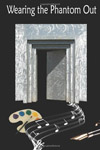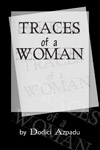by Dodici Azpadu
![]() Most standard grammar texts include a section of pairs of words that are frequently misspelled and misused. If you are in doubt about a usage, look it up. You can’t rely on the computer grammar checker.
Most standard grammar texts include a section of pairs of words that are frequently misspelled and misused. If you are in doubt about a usage, look it up. You can’t rely on the computer grammar checker.
One pair of words frequently misused is farther/further. The guidelines are simple, but the applications can be tricky. The rule of thumb is farther refers to distance. If distance is not an issue, further refers to quantity or degree.
According to Merriam-Webster’s Collegiate Dictionary (11th edition), however, farther/further are often used interchangeably as adverbs when spatial, temporal, or metaphorical distance is involved. That liberty is part of the historical usage of this pair. Standard English follows the guideline about distance or degree.
Nothing could be farther from the truth. [Correct]
How much farther is the swimming hole? [Correct]
Your support will further her career. [Correct]
There is no further discussion. [Correct]
A second pair of frequently misused words is few/less. The rule of thumb is that if you can count the persons or things in question, use few. If you cannot count the items, use less.
Few of the graduating class could afford the trip. [Correct]
Less candy is better for your diet. [Correct]
Trusting again to the Merriam-Webster source, less is likely to modify collective nouns, mass nouns, or nouns denoting an abstract whole. Fewer applies to matters of numbers and modifies plural nouns. Although grammar purists dislike interchanging few and less, less can modify plural nouns when distance or sums of money are involved.
Less also appears in a few fixed phrases such as:
. . . less than 100 miles
. . . an investment of less than $20,000
. . . in 25 words or less
This explanation is less than helpful. [Correct]
Take a few cookies and forget about it. [Correct]
That and which are often used incorrectly depending on the phrase or clause they introduce. If you are speaking about persons, avoid that or which. Persons take who.
The boy which the coach picked was tall. [Incorrect]
The boy that the coach picked was tall. [Incorrect]
The boy who the coach picked was tall. [Correct]
Notice, however, a group of people can take that.
The teams that coaches like win games. [Correct]
In addition to this caution, use that when the phrase or clause attached to it is restrictive or essential to the meaning. If the modifier is essential, do not use a comma with it.
Trained dogs, that sniff for drugs, are essential for law enforcement. [Incorrect]
The phrase that sniff for drugs is essential to the type of dog referred to, restricting the dogs to those trained for sniffing drugs and excluding other types of dogs such as dogs trained to roll over.
Trained dogs that sniff for drugs are essential for law enforcement. [Correct]
If the modifier is nonrestrictive or not essential, use which and use a comma to separate it from whatever it modifies.
New Orleans which is my favorite city is below sea level. [Incorrect]
Which is my favorite city is not essential to a sentence regarding the location of New Orleans at sea level. Therefore, it needs commas to set it off.
New Orleans, which is my favorite city, is below sea level. [Correct]
You will occasionally see which used in a restrictive manner, but the rule of thumb is relatively easy to remember.
Some sources about usage are prescriptive; they explain what should be done. Some sources are descriptive; they explain what is actually in use at a specific time. Writers should make friends with their dictionaries and grammar texts in order to make educated decisions about the sources they favor.
Dodici Azpadu, MFA, PhD is a novelist, short story writer, and poet. Her fiction publications include: Saturday Night in the Prime of Life and Goat Song (Aunt Lute/Spinsters Ink) and subsequently Onlywoman (London, England). Living Room (2010) and Traces of a Woman (2014), both by Neuma Books, are available as ebooks. She’s currently at work on a novel, tentatively titled Living Lies.
 Her poetry publications include Wearing the Phantom Out (2013) and Rumi’s Falcon from Neuma Books. Individual poems have appeared in Malpais Review, Adobe Walls, ContraACultura (online), Parnassus, Sinister Wisdom, Latuca, The Rag, and The Burning Bush. Her work has also been anthologized in Centos: A Collage of Poems and Hey Pasean!
Her poetry publications include Wearing the Phantom Out (2013) and Rumi’s Falcon from Neuma Books. Individual poems have appeared in Malpais Review, Adobe Walls, ContraACultura (online), Parnassus, Sinister Wisdom, Latuca, The Rag, and The Burning Bush. Her work has also been anthologized in Centos: A Collage of Poems and Hey Pasean!
Dodici teaches “The Joy of Poetry” and “Craft of Creating Writing” classes through University of New Mexico’s Osher Lifelong Learning.
This article was originally published in the August 2011 issue of SouthWest Sage and is reprinted here by permission of the author.



























Leave a Reply